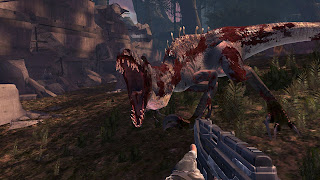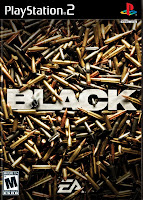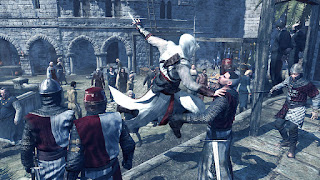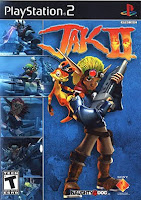 Game: Jak II
Game: Jak IISystem: Playstation 2
Release date: October 14, 2003
Developed by: Naughty Dog
Published by: Sony Computer Entertainment
Jak and Daxter: The Precursor Legacy was one of the best games for the Playstation 2. Designed along the lines of classic platform games like Super Mario 64 and Banjo-Kazooie, Jak and Daxter represented a family-friendly platformer with colorful characters and a great sense of humor. Its sequel, Jak II, embraces many of its platform mechanics, but presents players with a much darker storyline and a sandbox-style game engine which looks less like Jak and Daxter and more like Grand Theft Auto III.
Jak II takes place in the dystopia Haven City where ruthless dictator Baron Praxis rules with an iron fist. Jak, Daxter, and the rest of the gang end up in Haven City after being flung through a Precursor portal. Once there Jak is arrested by Praxis' Krimzon Guard and subjected to torturous experiments for two years where a volatile energy called Dark Eco is infused into his body. After a long two years, Jak's best friend Daxter (transformed into a furry Ottsel in the first game) infiltrates the lab holding Jak and rescues him. From then on Jak and Daxter team up with the resistance movement and fight back against Praxis, his shocktroopers, and a techno-organic race of creatures called Metal Heads which are threatening the city from the outside.
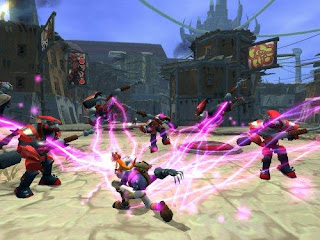
After two years of torture, Jak is understandably a changed man. In the first game, he was friendly, noble, and silent (wiseguy Daxter did most of the talking), but in Jak II he's angry, talkative, and motivated primarily by revenge. Jak's personality transplant is a microcosm of the larger changes in Jak II: tropical settings from the first game become urban slums and underground sewers; the death toll (including supporting characters) reaches new heights; and Jak uses a gun as his primary offensive attack instead of simple punch-kick combinations.
Perhaps the biggest change in Jak II is not one of tone but of gameplay. In Jak and Daxter the two heroes travelled back and forth to diverse environments collecting power cells, but in Jak II the dynamic duo move around Haven City completing tasks for the resistance and for unsavory criminals. To move around the city, Jak can hijack any number of hover vehicles. In this way Jak II resembles a kid-friendly Grand Theft Auto.

While not nearly as good as the first Jak and Daxter, Jak II is a fun action game which combines traditional platform mechanics with third-person shooting and sandbox-style gameplay. The changes in Jak II might not have improved the original formula, but it's refreshing to see a game developer reinvent its product.
Score: 83/100


